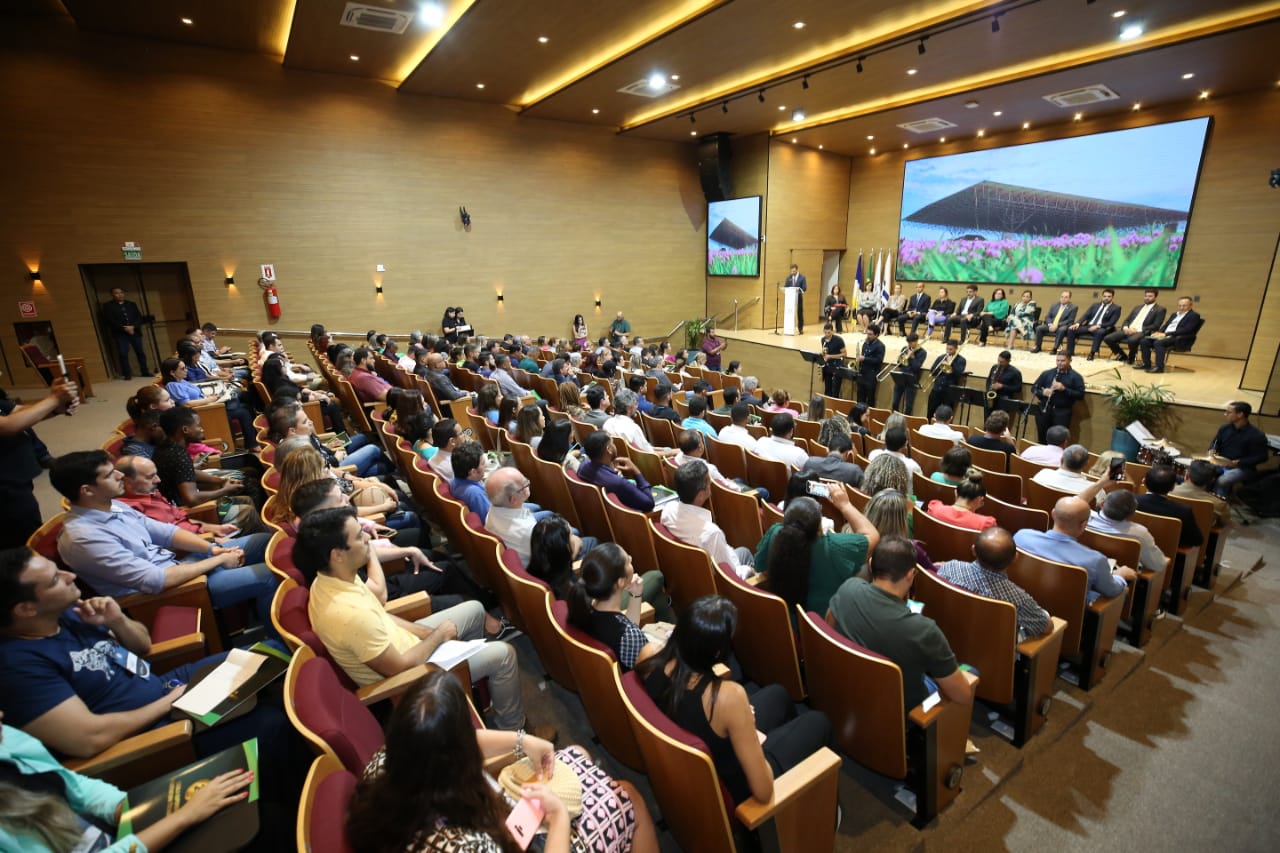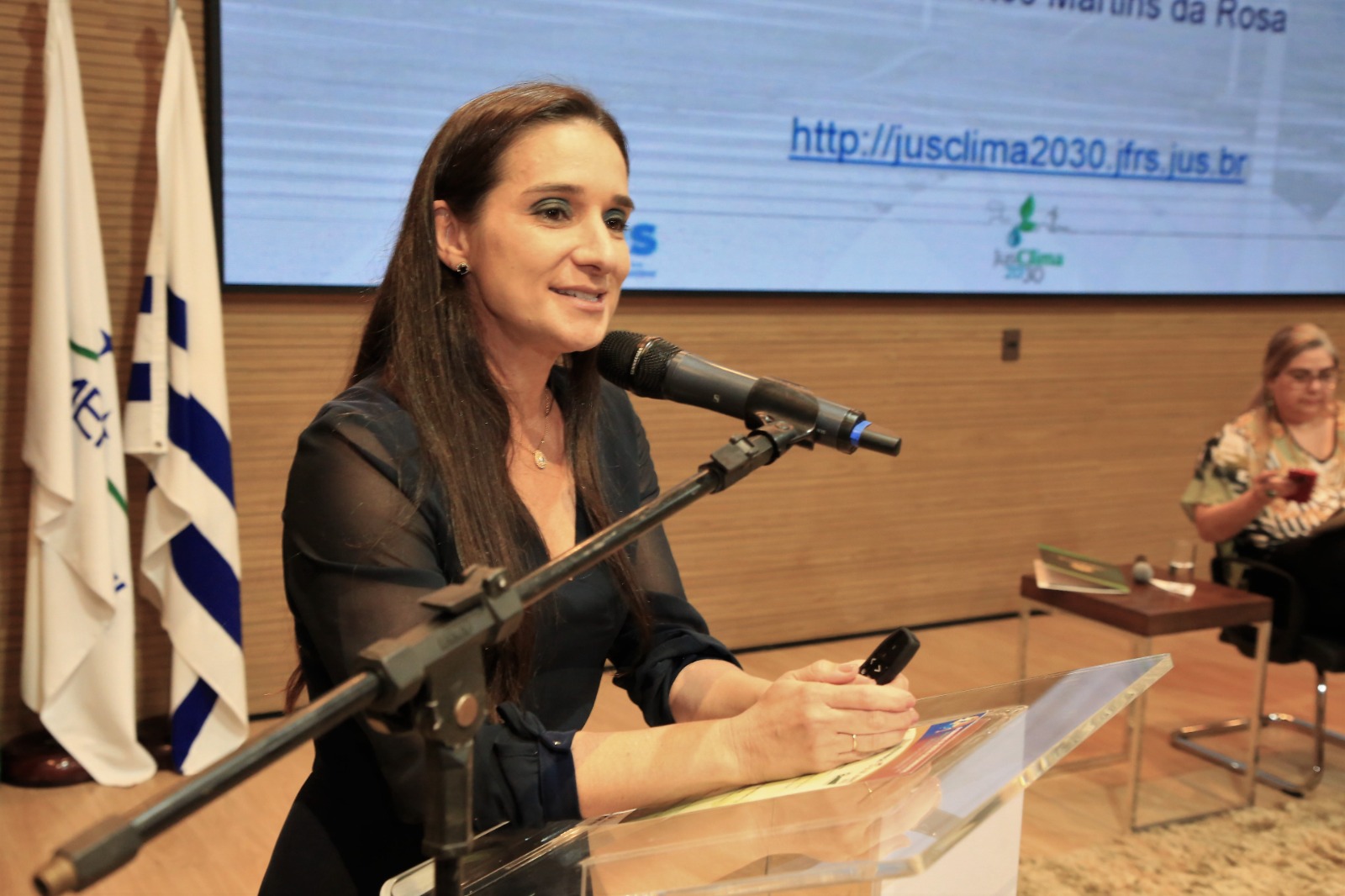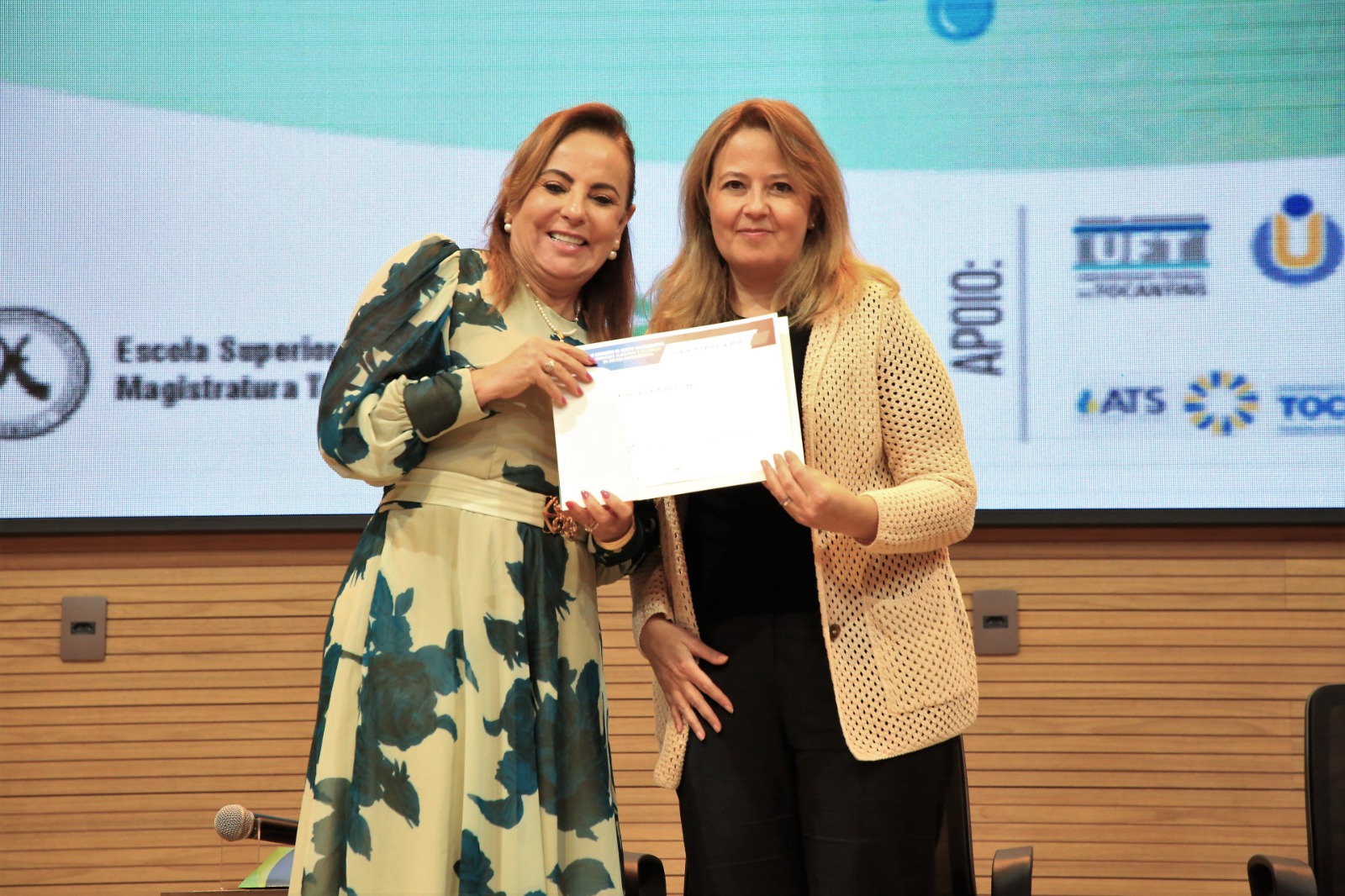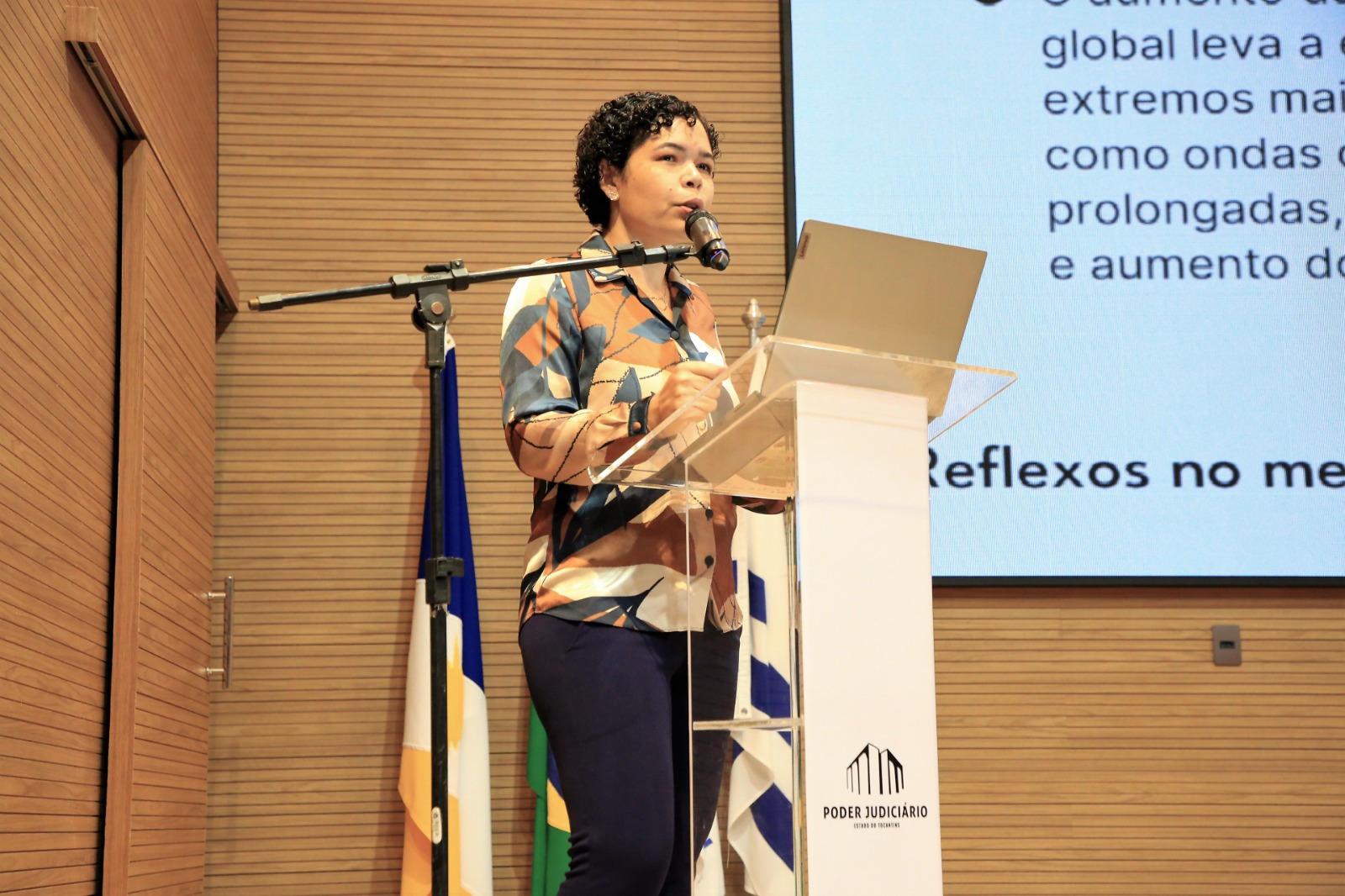
Gathering specialists, the third edition of the Socio-environmental Management Seminar started this Thursday afternoon (June 22nd) with transforming debates and awareness raising on environmental challenges. The first day of the event was focused on discussions about the role of the Judiciary in facing climate issues and in the search for really effective solutions.
The role of the Judiciary in confronting the climate emergency
In the first lecture of the day, Federal Judge Rafaela Santos Martins da Rosa, coordinator of Jusclima 2030 and acting in the Federal Court of the State of Rio Grande do Sul, addressed the topic on "The role of the Judiciary in facing the climate emergency". The Judge stressed the importance of all agencies and powers acting in the face of the imminent climate emergency and reminded that we are close to reaching an increase of one and a half degrees if we do not meet the goals set in the Paris agreement. She highlighted that the judiciary plays a key role in internal management, implementing compensation and mitigation plans, in addition to acting in the judicial activity, especially in the field of climate litigation.
Climate Litigation
The second lecture, taught by the lawyer Patrícia Faga Iglecias, associate professor of USP and superintendent of Environmental Management of the Rectory of USP, brought to the discussion the topic on "Climate litigation". With a comprehensive view of climate litigation, Iglecias stressed its importance as a tool to bring crucial issues of environmental protection to the Judiciary. Besides mitigating climate change, the lawyer highlighted the need for adaptation actions, in order to prepare our cities and our country to face the challenges of the future.
"Climate litigation allows macro issues of environmental protection to be brought to the Judiciary and thus we can work not only on the issue of climate change mitigation, but also on adaptation actions so that our cities and our Country are better prepared, as well as there is a discussion around losses and damages. It is, therefore, a fundamental issue today for any environmental law scholar. We realize that it is not possible to solve all the issues related to the climate change within the scope of Law; therefore, interdisciplinarity ends up being fundamental, allowing different areas of knowledge to bring contributions to solutions to environmental conflicts", commented the lawyer.

Sustainable Development Goals (ODS)
Closing the first day of the Seminar, Thaysi Castro Coelho Andrade, PhD, from the University of the State of Tocantins (UNITINS), brought up the relationship between the Sustainable Development Goals (SDGs) and climate change. The speaker stressed the importance of fulfilling the 169 established goals and highlighted the need for global commitment and joint actions to build a more sustainable future.
"The relationship between the SDGs and climate change is direct, since the SDGs seek precisely to mitigate some of the impacts that climate change is already promoting on the environment and communities in general," she said.
The Socio-environmental Management Seminar, which is an initiative promoted by the Judiciary, through the Superior School of the Judges of the State of Tocantins (ESMAT), continues until tomorrow (June 23rd). The event aims to promote capacity building and raise the awareness of the population about climate change.




